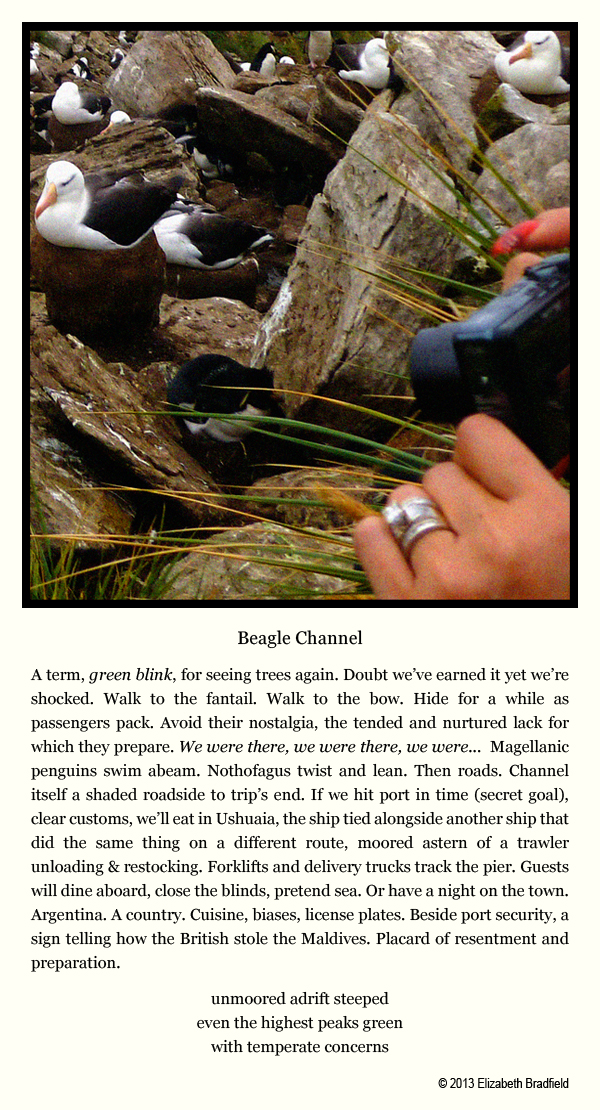Editor’s Note: EarthDesk Sunday is our new weekly post that features poets, videographers, animators, cartoonists, photographers and more. We proudly kick it off with a haibun from poet and naturalist Elizabeth Bradfield. Liz lives on Cape Cod and is Poet-in-Residence at Brandeis University. I had the singular pleasure of meeting and working with her at the recent Thinking Like a River conference at Bard College. I asked Liz to tell us more about Beagle Channel and the haibun form. But first read and view her work. Her description follows at the bottom of the post along with more of her bio. — John Cronin
«« »»
 Elizabeth Bradfield is the author of two poetry collections: Approaching Ice and Interpretive Work. Her poems have appeared in The New Yorker, The Atlantic, Orion, The Believer, Poetry and elsewhere. Founder and editor-in-chief of Broadsided Press, she lives on Cape Cod, works as a naturalist locally and on expedition ships, and is the current Poet-in-Residence at Brandeis University and on the faculty of the low-residency MFA program at University of Alaska Anchorage. More about Liz at www.ebradfield.com.
Elizabeth Bradfield is the author of two poetry collections: Approaching Ice and Interpretive Work. Her poems have appeared in The New Yorker, The Atlantic, Orion, The Believer, Poetry and elsewhere. Founder and editor-in-chief of Broadsided Press, she lives on Cape Cod, works as a naturalist locally and on expedition ships, and is the current Poet-in-Residence at Brandeis University and on the faculty of the low-residency MFA program at University of Alaska Anchorage. More about Liz at www.ebradfield.com.
About Haibun: Beagle Channel is from a longer manuscript about working in Antarctica called Botched Pilgrimage. The book is composed largely of haibun. Haibun, a classic Japanese form, recounts everyday life or travels in diary-like prose scattered with small poems, often haiku. The best examples are found in the writings of Bashō, the 17th century master of the form. Try Back Roads to Far Towns . As with much Japanese poetry and art, Bashō’s work is infused with allusions to poets, stories, figures and cultural tropes that his contemporaries would recognize—here, end notes serve the modern reader as an approximation of that experience.











Wonderful haibun, like getting a telegraph from the Beagle Channel. All muscle and no subject. And yet, how appealing the “I” who is hiding for a while.